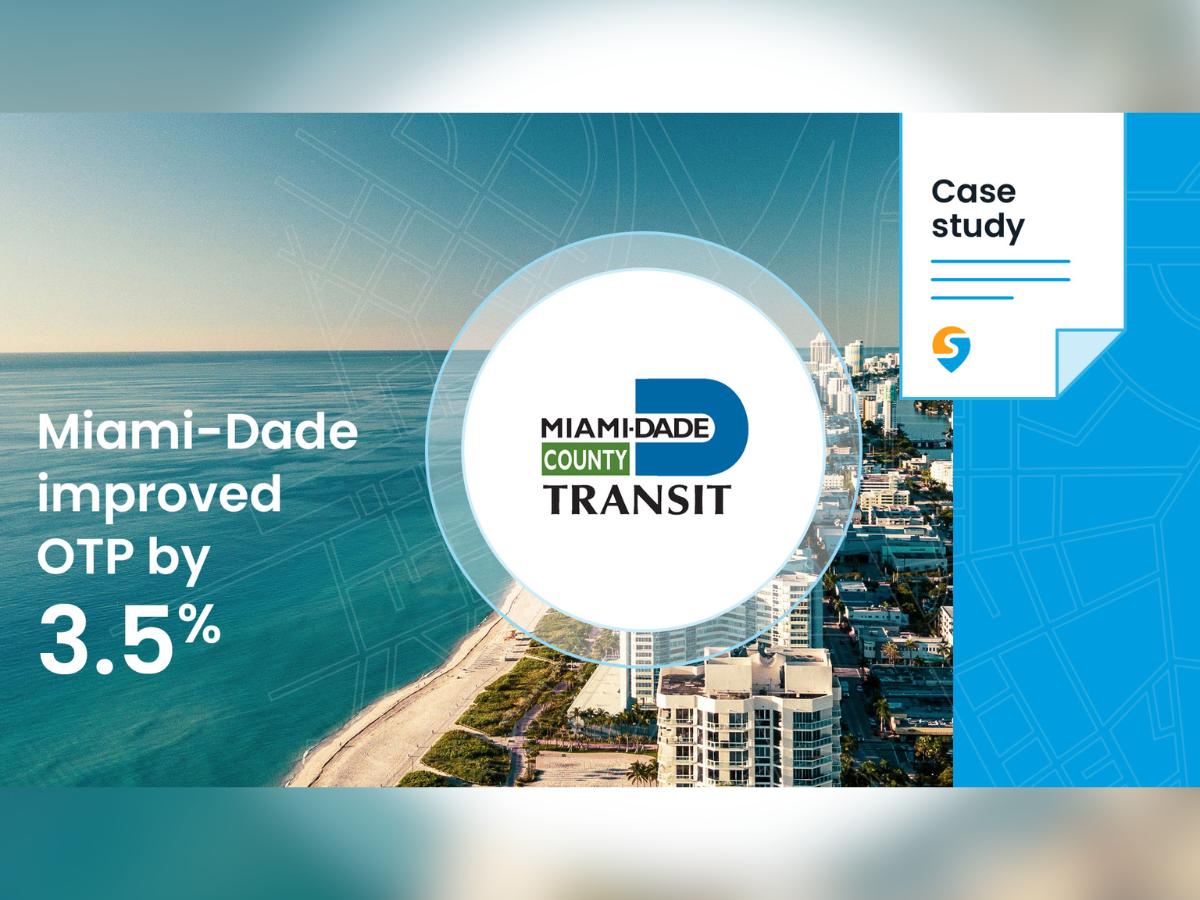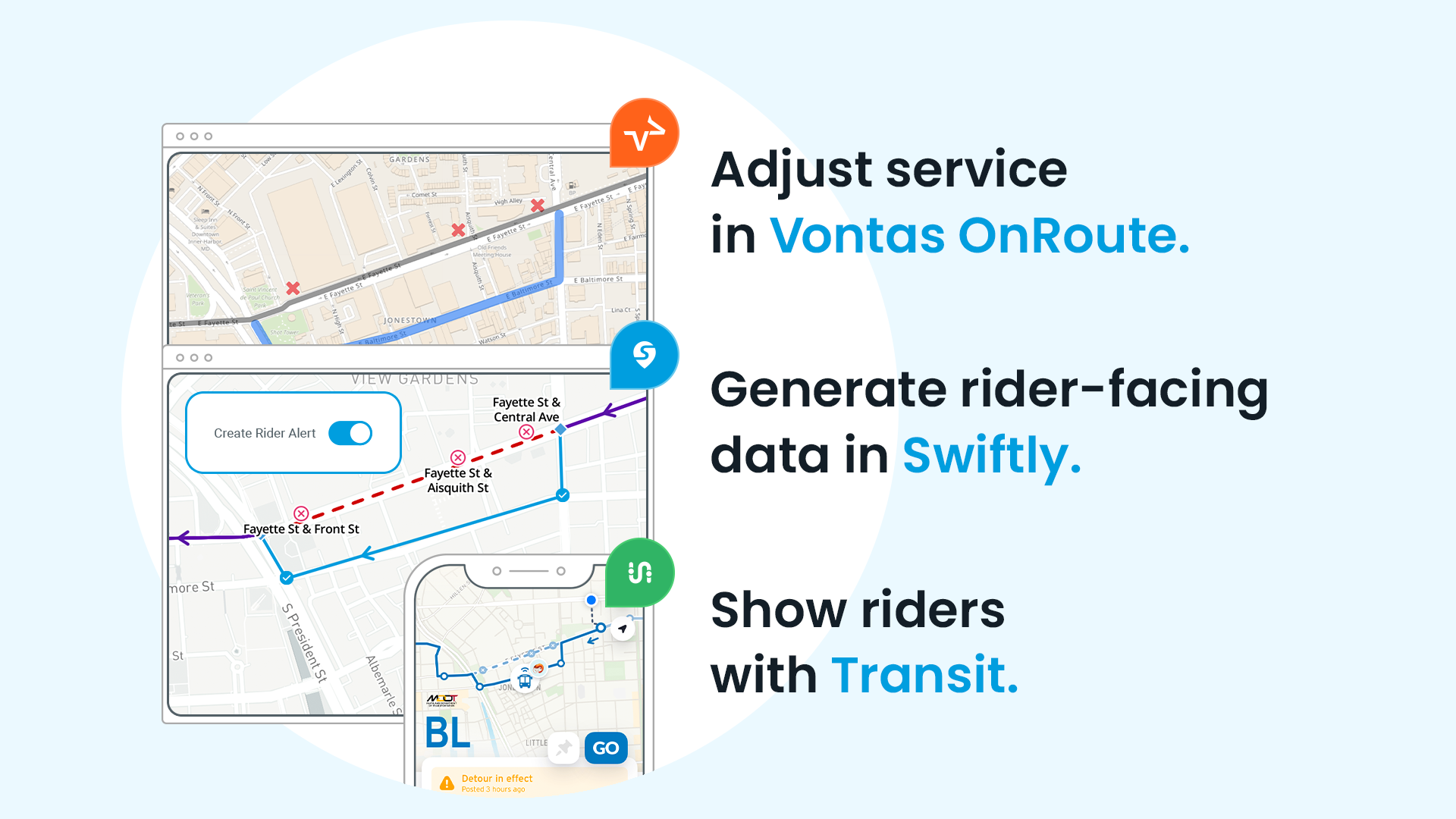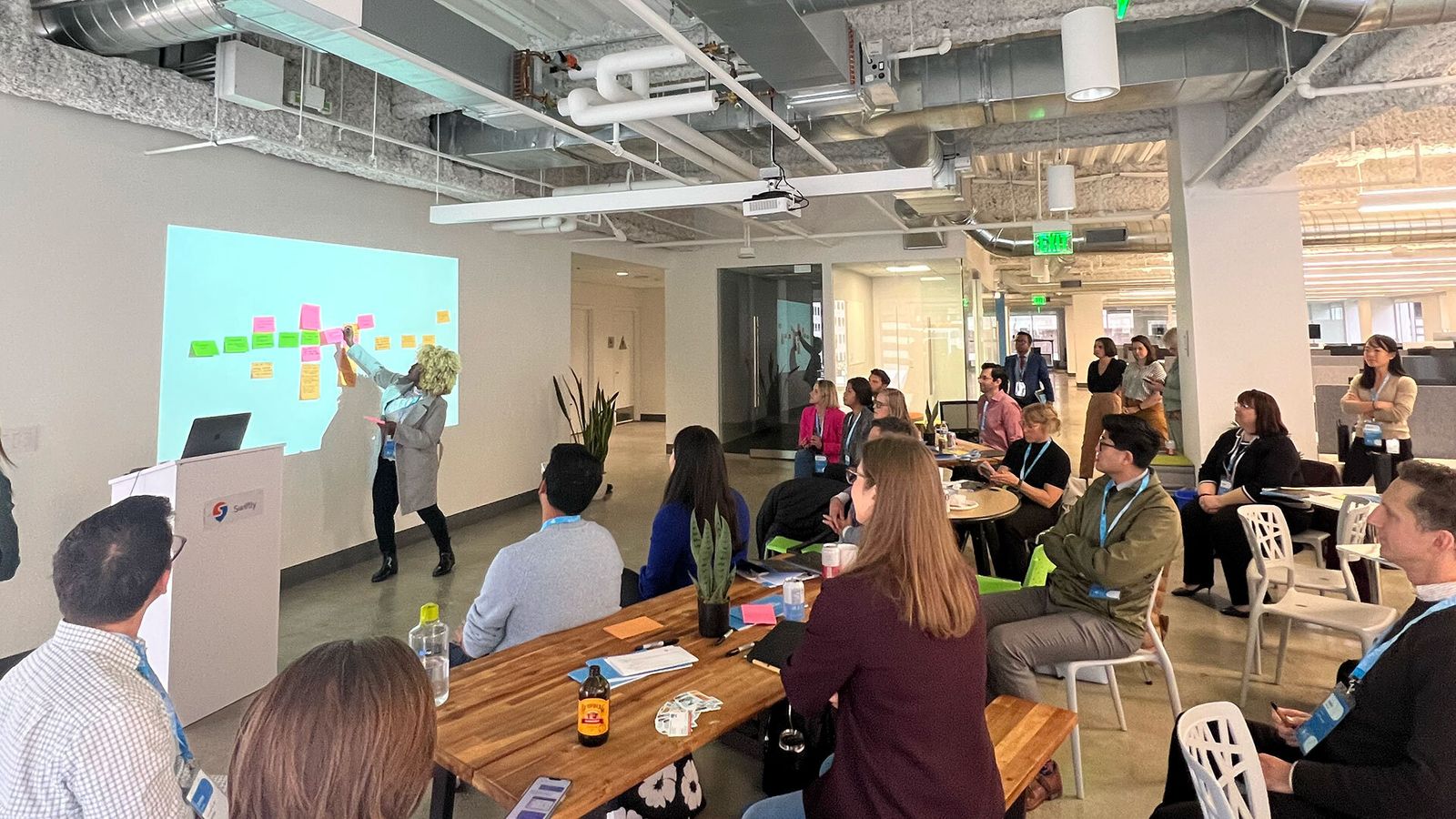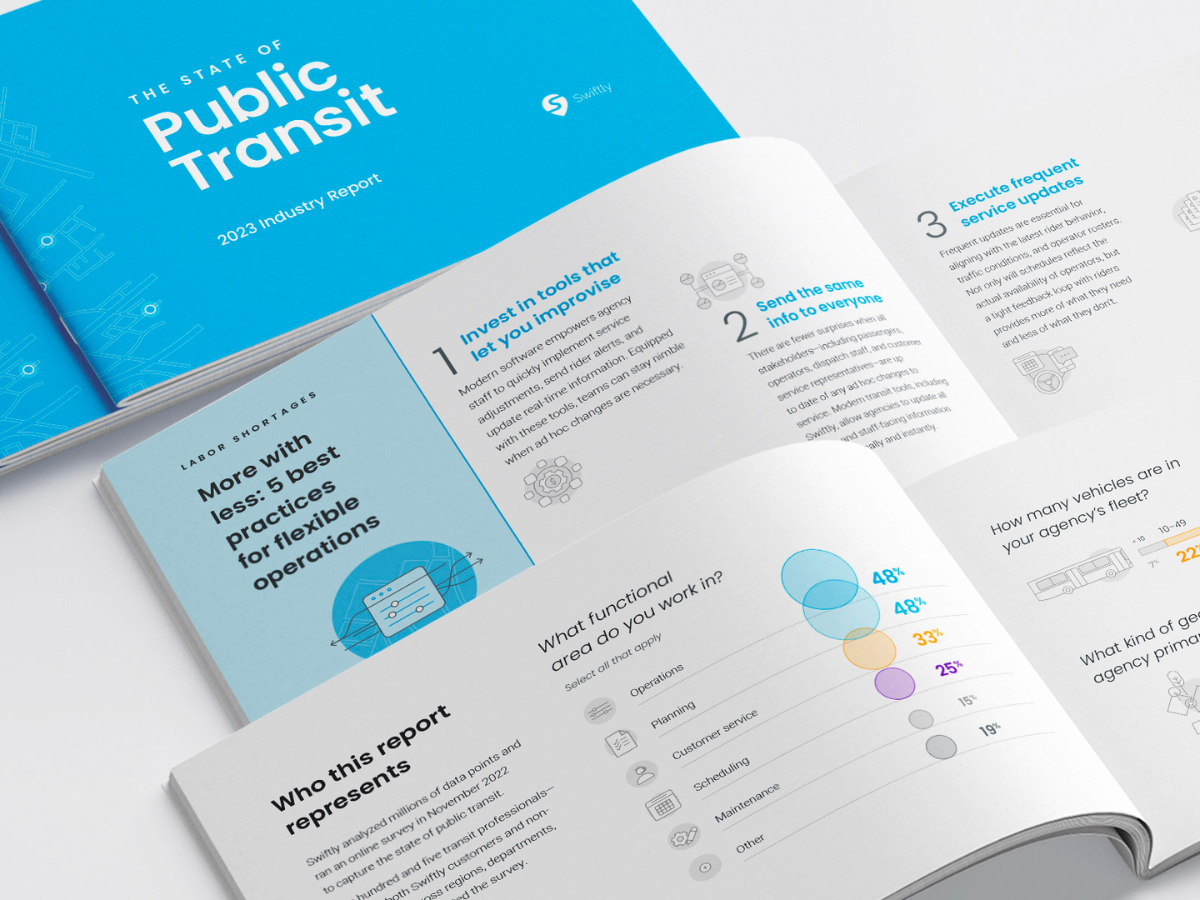Recap: A Conversation with Transit Leaders on the State of Public Transit 2023
Our annual State of Public Transit report takes the pulse of the industry by surveying over 100+ transit professionals on their greatest challenges, opportunities, and priorities for the year. In our 2023 State of Public Transit report, we found the industry in the midst of a revolution. Agencies are racing to catch up with passengers’ expectations for a connected world, and the industry is ready for these expectations to turn into reality.

We recently brought together transit leaders for a conversation on the topics highlighted in the report. Our panel, moderated by Swiftly Sales Engineer and former planner Jennifer Fierman, included transit agency practitioners, technology providers, and policymakers:
- Francis Julien, Deputy Director, Regional Transportation Commission of Southern Nevada
- Gillian Gilette, Program Manager, California Integrated Mobility, CalTrans
- Bibiana McHugh, Manager, Mobility and Location-Based Services, TriMet
- David Block-Schachter, Chief Business Officer, Transit
Specifically, we set out to understand how those on the front lines of driving the transit industry forward see critical issues playing out over the coming year. We asked panelists to separate the real impact from the hype and share how topics such as infrastructure funding, procurement, and data standards will evolve in 2023.
Read on for highlights from the webinar, and fill out the form here to receive the webinar recording in your inbox.
Staffing Shortages
The report found that labor shortages are nearly universal among agencies, leading 71% of agencies to cancel or delay service due to labor shortages. Panelists pointed out that a key priority is keeping riders informed through service cancellations.
Block-Schachter shared insights based on Transit’s own research polling riders nationwide:The worst part of this is that only 26% of people felt well-informed about cancellations. Agencies aren’t doing enough to keep riders informed. It’s time to make investments in software and humans to get the word out when this happens.
While the RTC of Southern Nevada has had relative success replenishing their operator ranks, the agency has also made the investments Block-Schachter mentioned to provide riders with the most accurate information possible.
Julien shared the agency’s approach:With a partnership between Swiftly and Transit, we’ve set up a dedicated team to publish service adjustments.
24/7, as soon as there is a disruption or a special event, we have staff pushing out information to clients on where there is a detour or a stop closure. It’s never fun to know your bus is detoured, but at least you know about it and are not standing at the corner waiting.
Federal Infrastructure Funding
There are record funds available to transit agencies today through the passage of the Infrastructure Investment and Jobs Act, but questions remain about how agencies can turn dollars into impact for passengers. Do agencies have the personnel to apply for grants? Are they prepared to measure the impact of projects to meet the data analysis requirements of certain grants?
Julien pointed out the investments in personnel and processes the RTC of Southern Nevada has undertaken to make the most of federal funding:These grants are a life-saver for the industry. We doubled our grant-writing teams. We’ve asked all departments to have pre-written use cases and started pilots to gather data, so we can be ready when a grant comes out. We rely heavily on data. Everything we do in a grant has to move the needle for the customer experience.
McHugh pointed out that agencies also need to carve out resources, whether internal or external, to support the technology and data collection needs associated with innovative projects:Grants facilitate public and private partnerships. We can’t do it alone. A lot of the grants are technology based. It can be difficult to secure IT resources.
They have to be approached like a project, looking at short and long-term maintenance costs. There’s a big shift to data and analysis. Being able to capture information from the pilot projects to measure success and impact would help.
Transit Technology
The State of Public Transit 2023 report found that transit professionals frequently spend excessive amounts of time completing tasks that should be done with only a few clicks using modern technology.
Empowering staff with technology is a top priority for agencies in 2023, and our panelists had helpful guidance for agencies evaluating products as they build out their transit technology portfolios.
Multiple panelists brought up the concept of modular software that relies on open standards rather than proprietary technology.
Gilette, who evaluates technology for California agencies through her role at Cal ITP, said:We need to make sure products are legos. Stop thinking about custom integrations and start thinking about interoperability.
Julien described some of the benefits of architecting a modular approach from the ground up:One thing we love about modular technology is the open data architecture. We can flow in data from our scheduling software to Swiftly to Transit. It allows us to be way more nimble. Getting upgrades and new features is much easier. When you’re talking about a legacy system like our CAD/AVL system, it always takes longer and there are features that are not readily available.
McHugh pointed out best practices in the technology acquisition process, foreshadowing another major topic of the report:It’s difficult to know what’s coming next. One thing you can do is remain flexible and build your platform in a way that you can plug and play, where you’re not tied in to one particular vendor. It comes down to writing your RFPs in a way that you’re heading more strategically towards a data-centric approach than a software-centric approach.
Data Standards
Data standards are a critical foundation for this open data architecture, and we were thrilled to gather one of the original authors of the GTFS data standard in McHugh. She summed up the topic well: “Data standards facilitate innovation.” Data standards like GTFS-rt continue to evolve today, and all the panelists shared advanced applications of the data standard that go beyond communicating arrival predictions with passengers.
Procurement
Getting procurement right is essential to a transit agency ending up with the best transit technology for their needs. Yet the State of Public Transit 2023 found that 67% of transit professionals believe procurement needs an overhaul. Procurement best practices from other industries, such as outcome-oriented procurement, hold the potential to center technology evaluation in the rider impact.
Block-Schacter summed up the outcome-oriented philosophy of procuring technology:You don’t want software. You want what software enables for the rider experience.
Julien confirmed that the methodology has gained traction with transit agency practitioners:Outcome oriented procurement is making headways. We’re putting clear KPIs and goals that need to be met in RFPs.
We were thrilled to gather a panel of experts charting a path forward on some of the most important questions facing transit today. For the full insights from our panelists, make sure to watch the on-demand webinar today.
This article was originally published by Swiftly.














